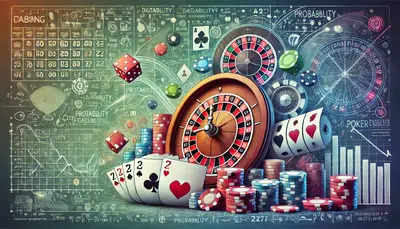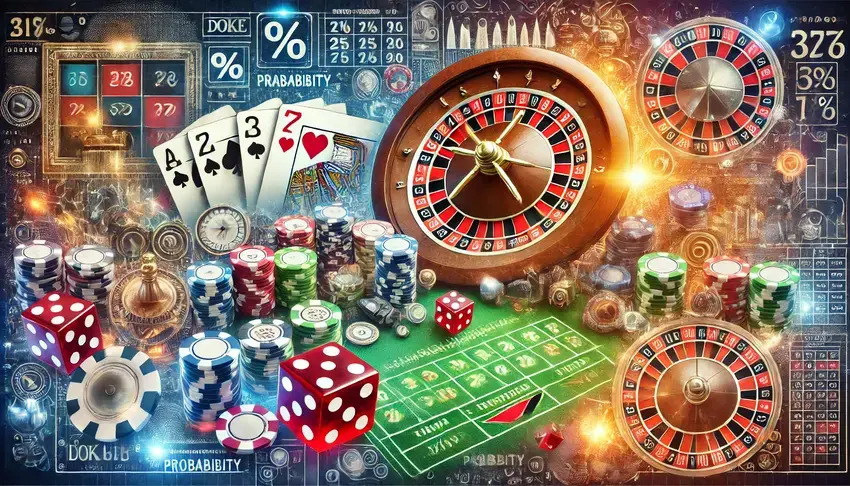
The Most Important Thing About Probability in Gambling
Understanding probability is essential in the world of gambling. Whether you’re playing in a physical casino or online, knowing the odds can significantly impact your gaming experience and potential winnings. This article delves into the concept of probability in various casino games, highlighting those that require skill versus those that are purely based on luck, and discusses which games offer the best and worst odds for players.
What Casino Gambling Games Are Like
Casino gambling offers a wide array of games, each with its unique rules and chances of winning. One popular game is casino 21 Point, also known as blackjack, where players aim to have a hand value closer to 21 than the dealer’s without exceeding it. This game, like many others in the casino, hinges on both luck and strategic decision-making.
Casino Games That Require Knowledge and Skills
Some casino games are not just about luck; they require a degree of knowledge and skill. Games like poker, blackjack, and certain types of sports betting fall into this category. In poker, for instance, players must understand hand rankings, betting strategies, and psychological tactics to outsmart their opponents. Similarly, in blackjack, players use strategies like card counting and optimal play techniques to reduce the house edge, making it a game where skill can significantly influence outcomes.
Casino Games That Do Not Require Knowledge and Skills
On the flip side, many casino games rely purely on chance, requiring no specific skills or knowledge. Slot machines, roulette, and bingo are prime examples. In these games, the outcome is entirely random, determined by algorithms or physical forces like a spinning wheel. Players cannot influence the result through strategy or skill, making these games purely luck-based.

Casino Games with the Best Odds for Customers
When it comes to casino games, the odds of winning vary greatly. Blackjack, with its relatively low house edge, offers some of the best odds for players, especially when using basic strategy. Other games like baccarat and craps also provide favorable odds. In baccarat, the house edge is low on the banker and player bets, while in craps, betting on the pass line or come bets gives players a decent chance of winning.
Casino Games with the Worst Odds for Customers
Conversely, some casino games are notorious for having poor odds for players. Slot machines, while highly entertaining and popular, often have a high house edge, meaning the casino is more likely to profit over time. Similarly, games like keno and certain types of lottery-style games offer slim chances of winning big, often with a significant portion of bets going to the house.
In conclusion, understanding the role of probability in casino games can help players make informed decisions about where to place their bets. While some games offer better odds and the potential for strategic play, others are purely based on luck. By being aware of these differences, players can choose games that align with their risk tolerance and desired gaming experience. Whether you prefer the skill-based challenge of blackjack or the thrilling unpredictability of slots, knowing the odds is key to enjoying your time at the casino.
